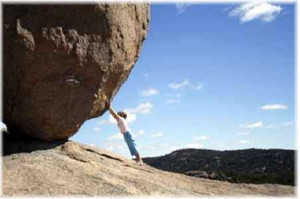 This is a huge topic and hardly done justice in a single blog post, so the treatment here will be light, but should in no way diminish the importance of the depth of this subject. Children with good self-esteem grow up to be confident adults, who know and most importantly like themselves for the people that they are. Only by liking/loving ourselves can we love others. It starts with self-love, which has self-esteem and self-confidence at the core.
This is a huge topic and hardly done justice in a single blog post, so the treatment here will be light, but should in no way diminish the importance of the depth of this subject. Children with good self-esteem grow up to be confident adults, who know and most importantly like themselves for the people that they are. Only by liking/loving ourselves can we love others. It starts with self-love, which has self-esteem and self-confidence at the core.
Many things that parents do hurt a child’s developing self-esteem, with punishment as a prime offender. You might argue that punishment (some call it discipline, but they really aren’t the same thing) is necessary to teach children, but there are alternatives to punishment that work better because they do not erode self-esteem or cause the child not to develop self-confidence.
What punishment does is to shut down communication – when parents take a punishment stand and stick by their word (“I’ll show you that I mean business!”) the child is backed into a dead end corner with no way out (with options of crying, yelling, getting mad, withdrawing, arguing, wheedling, planning future retaliation – all undesirable communication stoppers). Punishment may stop the behavior now, but it does not promote self-correction of the bad behavior.
And punishment undermines self-esteem, as it reminds the child of just how powerless they are in their world of total parental power. They feel de-valued as people, pushed around, and that their thoughts and feelings are unimportant. Hardly a way to build self-confidence, necessary if the behavior is going to self-corrected, which is the ultimate goal.
When I worked in schools, I would see some lively, energetic, “full of it” middle-school kids that the teachers hated having in class. Certain kids were labeled as challenging because they would ‘disrupt’ the class with their multitude of questions, some antics, and just general excess energy (forgetting that excess to an adult is not abnormal to a pre-teen). Teachers love the ‘good’ kids – politely contained, studious, they do as they are asked/told. Some teachers take it upon themselves to ‘break’ the wild child, like breaking a wild horse – they take on the hard cases, determined to “make him mind’ in their classroom. This military style of thinking is hardly appropriate; who wins when an adult succeeds in breaking an 11-year old child?
I had such a wild child – my 4th baby – and I also WAS a wild child. My teachers hated having this straight-A student in class, primarily because I determined early on that I was not going to be broken. I may have driven my teachers crazy but I turned into a confident, self-assured individual determined to add value to the world. When these ‘handful’ kids are broken, when the teacher or parent is successful in breaking their spirit by repeatedly putting them in their place, what a loss! For the ones that survive childhood with their self-esteem intact grow up to become our future leaders, business entrepreneurs, mission driven visionaries. (Yes, perhaps criminal masterminds too, but that’s due to poor parenting on a different level.)
COMMUNICATION TAKEAWAY: The development of strong self-esteem in their children is an important part of the job of parenting, as they will take it, or the lack of it, into the many years of adulthood. Many things can help or hurt this development. Often parents erroneously praise their child repeated for who they are (“you’re such a good girl/smart boy/sweet child/special, etc”), thinking that they are building self-esteem. While this may not hurt, it does the child a disservice, and leads to “that’s just my mother’s opinion, which doesn’t count” kind of thinking. Children need to understand their specific behavior that leads to skills that then gives them self-esteem that comes from accomplishments.
